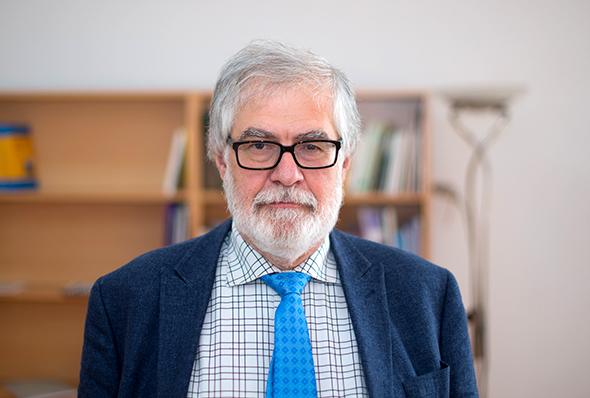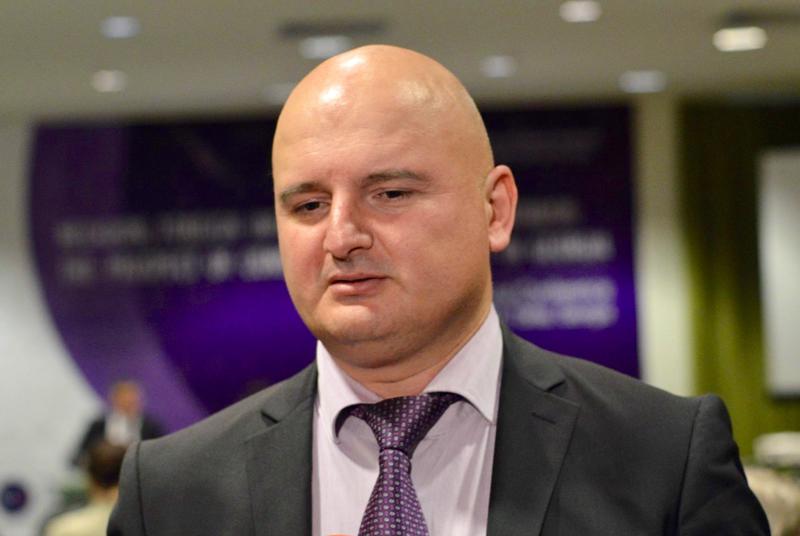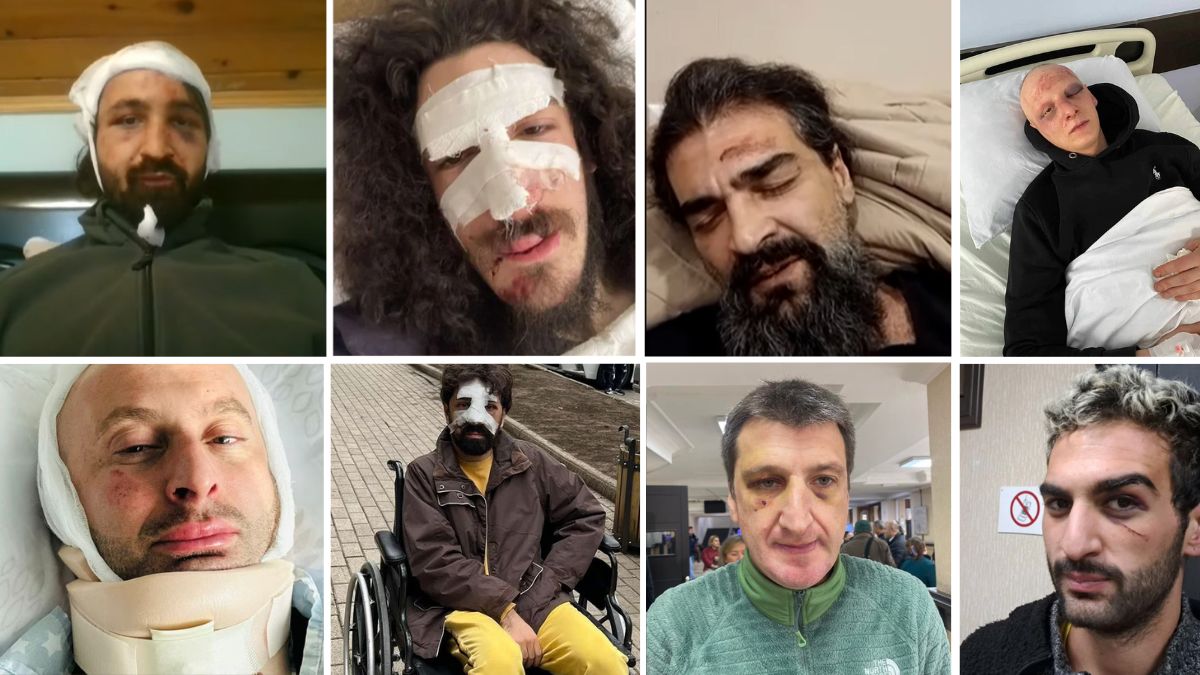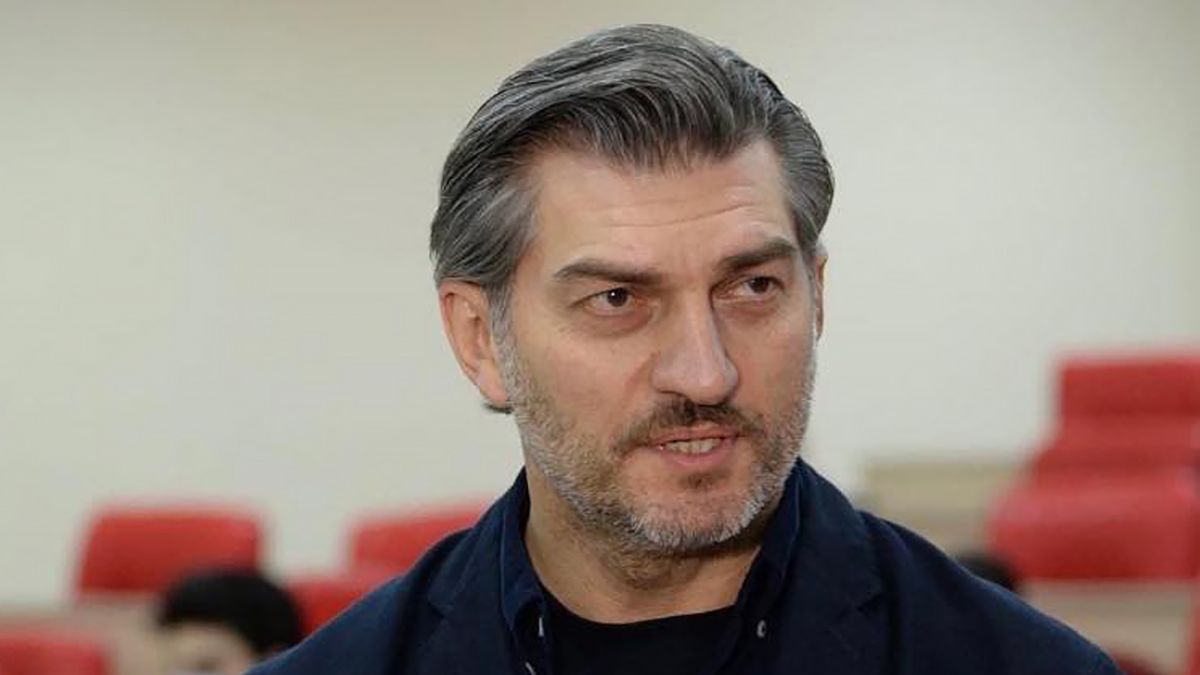What's next when Salome Zourabichvili formally stops being Georgia’s president?
Will Zurabishvili stop being president?
On 14 December, Georgia‘s parliament, composed solely of members from the ruling Georgian Dream party, will elect the country’s next president. The candidate, former footballer Mikheil Kavelashvili, was personally nominated by the party’s honorary chairman and founder, oligarch Bidzina Ivanishvili.
Kavelashvili played for clubs including Alania, Dinamo Tbilisi, Manchester City, Grasshoppers, and several others in Europe over the years. He also worked as a football commentator for Public Television. In the previous parliament, he ran as a candidate from the ruling Georgian Dream party. Notably, the “Education” section on his CV on the parliament’s official website is blank.
The party claims that even if two rounds of voting are required, the second round will take place on the same day.
The president’s inauguration is scheduled for 29 December.
Given that these events are categorically rejected and deemed illegitimate by the opposition, the current president Salome Zourabichvili, and a significant portion of the public, tens of thousands of people are participating in protests across the country. What happens next? What role can Salome Zourabichvili play? Will Georgia lose its ability to be heard in the West? We gathered opinions from Georgian experts.
For the first time in history, Georgia’s president will not be elected by the people but by an electoral college. The college consists of 300 members, including 150 parliamentary deputies. The new parliament was elected on 26 October, with the ruling Georgian Dream party officially receiving nearly 54% of the vote, according to the Central Election Commission.
However, all four opposition groups (three alliances and the party For Georgia led by Giorgi Gakharia) that entered parliament, as well as President Zourabichvili, declared the elections rigged, the parliament illegitimate, and the government it appointed unlawful. The elections were not recognized by any Western country except Hungary.
Legal experts note that at the time of the parliament’s first session, cases challenging the mandates of all 150 newly elected deputies were pending in the Constitutional Court. According to the Constitution, parliament was not allowed to convene under such circumstances, rendering all its decisions unconstitutional—including the presidential election.
Both the opposition and Salome Zourabichvili herself assert that she remains the legitimate president of Georgia and, in fact, the only legitimate institution in the country. She maintains her role as Commander-in-Chief of the Defence Forces and the nation’s highest representative in foreign relations.
Expert commentary

Gia Nodia, Doctor of Political Science and Professor at Ilia University:
“The government has abandoned the course of European integration, which has been traditional for the country for over 30 years and is enshrined in the Constitution.
Today, only President Salome Zourabichvili upholds this constitutional principle.
She represents Georgian society on the international stage and demonstrates that the country has a legitimate political leader, elected by the people, who remains committed to the policy of European integration. This is now her primary role.
The president is also attempting, to some extent, to influence the domestic political situation. She tried to unite the opposition and create a common opposition platform. However, in the current context of a widespread national protest movement, the opposition has become almost invisible.
The opposition’s role in these processes is minimal, and consequently, Salome Zourabichvili’s significance as a domestic political player is also diminished.
After the end of her presidential term, a new reality will emerge – one that Bidzina Ivanishvili has always desired. The country will have a president with no real role, an empty figure in an empty space.
Ivanishvili has always believed that the president should be insignificant, whether they exist or not. The candidate he has chosen will be exactly that type of president – faceless and functionless. They may or may not even retain ceremonial duties, and their involvement in foreign relations is out of the question.
Salome Zourabichvili argues that the new president cannot be legitimate because their election involves an illegitimate parliament. She may be correct in principle. However, since the parliament has declared itself legitimate, this government has the means to hold presidential elections and replace the current president.
? Salome Zourabichvili lacks the power to oppose this process. It might simply serve as an additional impetus for the public protests already taking place.
To change the current situation, a kind of crisis must emerge within the government itself. It’s hard to imagine Bidzina Ivanishvili coming to his senses, repenting, or that his or Prime Minister Irakli Kobakhidze’s worldview will change.
It’s crucial to somehow deepen the existing crisis trends within the government, and most importantly, within its repressive apparatus, as the authorities today survive almost entirely through the forceful actions of this apparatus.”

Paata Zakareishvili, conflictologist:
“Everything Salome Zourabichvili has already done and what she still has to accomplish is very important.
Formally, she may no longer remain president, but she has already become the leader of the opposition and the voice of the people.
Her most significant achievement is that, from a legitimate position based on the will of the people, she has informed Europe that the Georgian people want to be part of Europe.”
? This is extremely important—the fact that citizens are not protesting alone in the streets but have the support of the president. Without this, the people’s protest would not be as compelling.
Zourabichvili has already reached a level that Kavelashvili, who will likely be named president, cannot compete with. He won’t be able to act as a counterbalance to Zourabichvili.
This is yet another major mistake by Georgian Dream. They didn’t even attempt to challenge Salome Zourabichvili with a significant figure, someone capable of traveling across Europe and clearly presenting their positions.
There is much discussion about her meeting with Trump. While it was certainly a positive development, I wouldn’t expect too much from it.
? Our problem is that we always look to someone else for solutions. But currently, our strength lies within the country. We have a unique, golden resource in our people. Salome Zourabichvili, working within Georgia, is more important to us than Trump.
Don’t look for solutions outside when they lie within. Constant protests, acts of civil disobedience, and strikes show that people have already taken charge of domestic political processes. It’s also clear that Georgian Dream has had to resort to recruiting criminals into its security structures and using unlawful methods.
All of this clearly indicates they are in crisis and cannot find a way out.
I appreciate that there is no visible leader in this protest movement. I like that Georgia has, as it turns out, freed itself from the obsession with leaders and figureheads.
The main goal now is to push for new parliamentary elections. Even as a former president, Salome Zourabichvili can remain a source of energy for Georgia and a communicator of that energy abroad.
She will retain the same two roles: helping to address domestic political challenges in Georgia and boldly engaging with the democratic world.
I am confident that even as an ex-president, Salome Zourabichvili will gain more credibility and legitimacy in the eyes of foreigners than the Ministry of Foreign Affairs, the ruling party’s president, and the Georgian parliament combined.

Korneli Kakachia, Doctor of Political Science, Director of the Georgian Institute of Politics:
“Salome Zourabichvili managed to turn public opinion in her favour, despite the fact that initially, she wasn’t highly regarded as she was a candidate from Georgian Dream.
The key achievement she has made is becoming a coordinator, the person who united the democratic forces in the country. This is particularly significant because she is the last president of Georgia elected directly by the people.
At the same time, her connections with Western leaders, top EU officials, and France have helped her become a sort of ‘torchbearer,’ a leading force for Georgia’s pro-European choice.
She is welcomed everywhere in the European Union. Even opposition parties in Georgia have recognized that she truly stands for the European path and is making every effort to become the voice of Georgia in the EU and on the international stage.
? After her term ends, she will naturally lose the advantages of presidential status. However, she could become a spokesperson or coordinator for the opposition, or even a leader of Georgia’s democratic society.
The authorities are currently relying on two “allies”: Trump and the New Year festivities, or “satsivi.” But I don’t think this is a reliable strategy. While protests may weaken or pause during the New Year, the societal momentum will likely persist at least until January 20.
After that, Trump’s inauguration will take place, and much will depend on his administration. Both opposing sides in Georgia are awaiting this moment.
? It is crucial that two processes continue: domestic public protests and external pressure on the Georgian authorities. Both aspects are equally important because change is unlikely to happen with only one of them.
The main objectives must be clearly defined. Here, political parties play a critical role, although unfortunately, their role is not very visible today.
I understand the caution of politicians, as any active involvement will immediately lead to accusations from the authorities that they are attempting a coup to seize power.
? However, it must be understood that protests cannot lack a political component. Yes, the protests are people-led, but they also need a specific goal.
If this government falls tomorrow, who will take responsibility, and what steps will they take? This remains unclear, and such uncertainty could greatly complicate the situation.”
Will Zurabishvili stop being president?






















